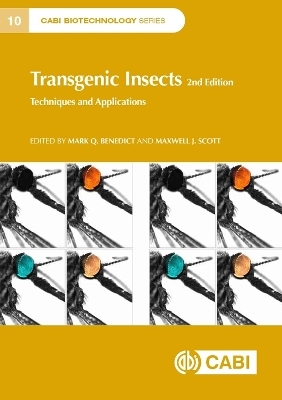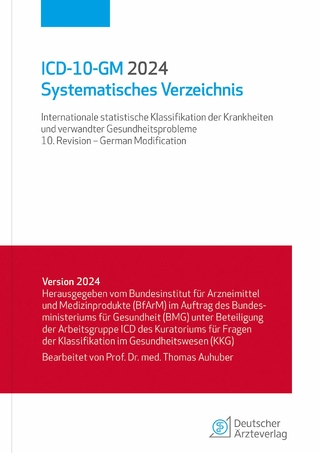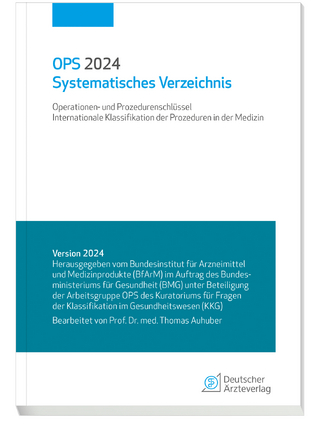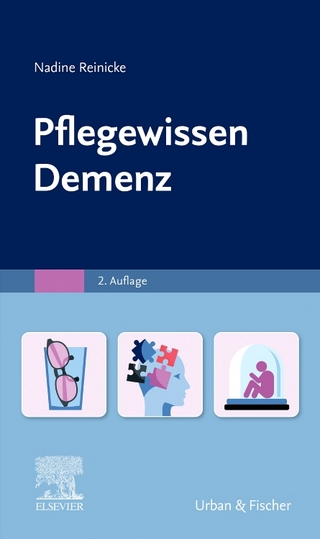
Transgenic Insects
CABI Publishing (Verlag)
978-1-80062-115-2 (ISBN)
Technology for modifying the genotypes and phenotypes of insects and other arthropods has steadily progressed with the development of more precise and powerful methods, most prominently transgenic modification. For many insect pests, there is now almost unlimited ability to modify phenotypes to benefit human health and agriculture. Precise DNA modifications and gene drive have the power to make wild-type populations less harmful in ways that could never have been performed with previous transgenic approaches. This transition from primarily laboratory science to greater application for field use has also necessitated greater development of modeling, ethical considerations and regulatory oversight. The 2nd Edition of Transgenic Insects contains chapters contributed by experts in the field that cover technologies and applications that are now possible. This edition includes increased attention to associated challenges of risk assessment, regulation, and public engagement. Featuring: Up-to-date analysis of molecular techniques, such as gene editing. Consideration of public attitudes and regulatory aspects associated with transgenic insects. Many examples of the wide range of applications of transgenic insects. This book will be very valuable to students and researchers in entomology, molecular biology, genetics, public health and agriculture, and will also appeal to practitioners who are implementing the technology, and to regulators, stakeholders and ethicists.
Mark Quentin Benedict (Edited By) Mark has a PhD in entomology with an emphasis on molecular biology and genetics from the University of Florida. He has been a developer of technology for developing transgenic insects, developed insectary methods for producing mosquitoes for release into the field, directed field studies underlying releases of transgenic insects and assisting developing country operations where transgenic insects will be used. He has worked at USDA, the Centers for Disease Control and Prevention (CDC), the International Atomic Energy Agency and the University of Perugia. He is currently a research biologist at the CDC and is based in Atlanta, GA USA. He has contributed book chapters and over 100 peer reviewed publications. Maxwell J Scott (Edited By) Max has a PhD in molecular cell biology with an emphasis on the regulation of gene expression from Baylor College of Medicine in Houston, Texas. He has developed techniques for insect transgenesis, engineered male-only strains of agricultural pests such as the New World screwworm and spotted wing Drosophila, led the assembly and analysis of genomes from several species including screwworm, participated in the application for field testing of a transgenic male-only screwworm strain and developed self-limiting gene drive technologies that are applicable to a broad range of insect pests. Max has worked at the University of North Carolina at Chapel Hill, the Institute of Biotechnology and Molecular Biology in Heraklion, Crete, Greece, Emory University and was a lecturer in genetics for 16 years at Massey University in New Zealand. He is currently a Professor in the Entomology and Plant Pathology Department at North Carolina State University. He has contributed reviews, book chapters, a patent and peer reviewed publications.
Chapter 1: Transposon-based Technologies for Insects Chapter 2: Inducible and Repressible Systems for Transgene Expression Chapter 3: Sex-, Tissue- and Stage-Specific Transgene Expression Chapter 4: RNA Interference to Modify Phenotypes in Agriculturally Important Pest and Beneficial Insects: Useful Examples and Future Challenges Chapter 5: Site-specific Recombination for Gene Locus-directed Transgene Integration and Modification Chapter 6: Receptor-Mediated Ovary Transduction of Cargo - ReMOT Control: A Comprehensive Review and Detailed Protocol for Implementation Chapter 7: Site-directed DNA Sequence Modification Using CRISPR-Cas9 Chapter 8: An Introduction to the Molecular Genetics of Gene Drives and Thoughts on Their Gradual Transition to Field Use Chapter 9: Drosophila melanogaster As a Model for Gene Drive Systems Chapter 10: Sex Ratio Manipulation Using Gene Drive for Mosquito Population Control Chapter 11: Population Modification Using Gene Drive for Reduction of Malaria Transmission Chapter 12: Modelling threshold-dependent gene drives Chapter 13: Tsetse Paratransgenesis: a Novel Strategy for Reducing the Spread of African Trypanosomiases Chapter 14: Paratransgenic Control of Chagas Disease Chapter 15: Asaia Paratrangenesis in Mosquitoes Chapter 16: Paratransgenesis in Mosquitoes and Other Insects: Microbial Ecology and Bacterial Genetic Considerations Chapter 17: Transgenic approaches for sterile insect control of dipteran livestock pests and lepidopteran crop pests Chapter 18: Honey bee genome editing Chapter 19: Progress Towards Germline Transformation of Ticks Chapter 20: Silkworm Transgenesis and its Applications Chapter 21: Tephritid Fruit Fly Transgenesis and Applications Chapter 22: Antiviral Effectors for Mosquito Transgenesis Chapter 23: Self-Limiting Insects for Pest Management Chapter 24: Public Acceptability and Stakeholder Engagement for Genetic Control Technologies Chapter 25: Regulation of Transgenic Insects Chapter 26: Economics of Transgenic Insects for Field Release Chapter 27: The Cartagena Protocol on Biosafety and the Regulation of Transboundary Movement of Living Modified Organisms Chapter 28: Risk Analysis of Transgenic Insects
| Erscheinungsdatum | 26.09.2022 |
|---|---|
| Reihe/Serie | CABI Biotechnology Series |
| Co-Autor | Hassan M. M. Ahmed, Omar S. Akbar, Serap Aksoy |
| Verlagsort | Wallingford |
| Sprache | englisch |
| Maße | 172 x 244 mm |
| Gewicht | 1686 g |
| Themenwelt | Informatik ► Weitere Themen ► Bioinformatik |
| Naturwissenschaften ► Biologie ► Genetik / Molekularbiologie | |
| Naturwissenschaften ► Biologie ► Zoologie | |
| Weitere Fachgebiete ► Land- / Forstwirtschaft / Fischerei | |
| ISBN-10 | 1-80062-115-9 / 1800621159 |
| ISBN-13 | 978-1-80062-115-2 / 9781800621152 |
| Zustand | Neuware |
| Haben Sie eine Frage zum Produkt? |
aus dem Bereich


